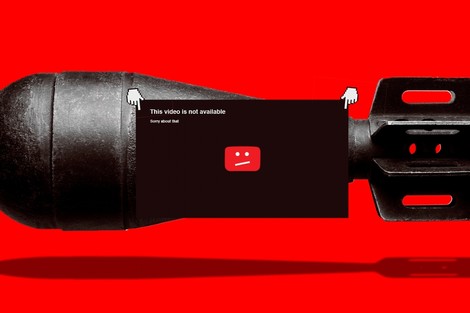Your podcast discovery platform
Curious minds select the most fascinating podcasts from around the world. Discover hand-piqd audio recommendations on your favorite topics.

piqer for: Global finds Technology and society
Prague-based media development worker from Poland with a journalistic background. Previously worked on digital issues in Brussels. Piqs about digital issues, digital rights, data protection, new trends in journalism and anything else that grabs my attention.
One Person’s Extremist Propaganda Is Another Person’s War Crime Evidence
Worried about proliferating extremist content, politicians have been trying to crack down on hate speech and criminal material circulating online. Germany, for example, approved plans to fine social media companies for failing to remove hate speech and illegal content quickly enough. EU’s also losing its patience, threatening social networks with legislation if they do not comply with set guidelines. Under heavy fire for not doing enough, Twitter, Facebook, YouTube and Instagram have started employing moderators and AI to delete abusive messages. Many will probably see the increased efforts to remove offensive content as much needed and long overdue. But there's always another side to the story.
For human rights researchers who use social media to document and gather evidence of ongoing atrocities, “the takedowns seem, at best, a destruction of evidence — and, at worst, complicity in atrocities,” writes The Intercept. Although it can never replace an eyewitness testimony, social media can be important evidence in the tribunals and courts that prosecute for genocide, war crimes and crimes against humanity. The activists fear that the content that gets removed might never reach the courtroom.
“Worries over disappearing evidence are not just theoretical. This past summer, YouTube rolled out a new artificial intelligence system designed to identify violent content that may be extremist propaganda or disturbing to viewers. Almost overnight, it shut down 900 groups and individuals documenting the civil war in Syria,” writes The Intercept.
The Intercept’s article is a great example of what good journalism is all about. Journalist Avi Asher-Schapiro took a topic that has been all over the news and looked at it from another, not-so-obvious perspective. Then, he went beyond black-and-white binary and provided a more nuanced discussion on hate speech and extremism content online.
